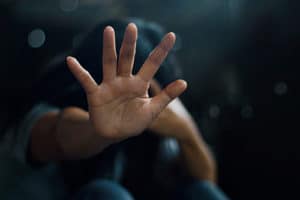 Many people with post-traumatic stress disorder or PTSD are unaware that they have it. Some may recall the events that led to their current feelings, but it is common for the subconscious mind to suppress them. It can be so difficult to experience the symptoms of PTSD without any knowledge about why. It’s also common for those struggling with PTSD to use drugs and alcohol as a way to self-medicate because it can help them deal with their symptoms. Over time, they grow dependent, resulting in an addiction that is difficult to recover from.
Many people with post-traumatic stress disorder or PTSD are unaware that they have it. Some may recall the events that led to their current feelings, but it is common for the subconscious mind to suppress them. It can be so difficult to experience the symptoms of PTSD without any knowledge about why. It’s also common for those struggling with PTSD to use drugs and alcohol as a way to self-medicate because it can help them deal with their symptoms. Over time, they grow dependent, resulting in an addiction that is difficult to recover from.
Fortunately, Northpoint Recovery offers treatment to address substance use disorder (addiction to drugs or alcohol) and PTSD therapy to help individuals address and heal from both conditions. This is called co-occurring disorders treatment.
What Exactly is Post-Traumatic Stress Disorder?
Post-traumatic stress disorder is a mental health condition caused by the occurrence of one or more traumatic events. Different types of PTSD can develop, and everyone is different about how they respond when trauma strikes. Those whose PTSD causes them to relive the event they experienced in their minds constantly. These individuals might have physical sensations or flashbacks that strike out of nowhere that take them back to the day of the event. At times, it can almost be like watching a movie of the event playing over and over in one’s mind.
PTSD can also cause avoidance behaviors within certain people. As a result, they avoid being around people as much as possible, or they may avoid various places or things that they consider to be triggers for memories of the event. Memory loss is quite common, and sometimes people will even black out parts of the experience that are too painful for them to think about.
People who have PTSD will usually feel numb inside. Their ability to connect with others is tarnished because of the events they’ve been through. They may find it difficult to relax, sleep, or even remain still for a while. They often lose interest in activities or hobbies they once enjoyed and may have difficulty functioning at work or within their families.
How are PTSD and Addiction Linked with Each Other?
Dealing with the symptoms of PTSD is very difficult and trying on both the mind and the body. Because of the amount of stress created with PTSD, those who have it will often turn to drugs or alcohol to escape.
Research has also shown that endorphin withdrawal plays a role in the way people with PTSD will use drugs or alcohol to control their symptoms. Endorphins are naturally released by the brain when experiencing a traumatic event, and these endorphins can reduce pain and serve as a way to cope. When the event has passed, endorphin withdrawal sets in, which is the same type of withdrawal experienced when drugs or alcohol are stopped. It’s not abnormal to turn to substances as a way to replace those endorphins. But as time goes by, the individual begins to feel as though they need drugs or alcohol to feel normal. This is when addiction takes place.
It’s easy to see how PTSD and addiction can be linked with each other. The question is, what is the proper way to treat them?
Getting Help for PTSD and Addiction at Northpoint Recovery
If you have PTSD, it’s possible that you never thought about the fact that your addiction and your mental health condition could be linked with each other. Many people don’t. Even those keep their PTSD symptoms a secret from any professionals they come into contact with because they are afraid of being labeled as someone with a mental health condition. Whether you have a long-standing diagnosis of PTSD or you suspect that you need to be diagnosed with it, getting the right kind of help for your co-occurring disorder is the only way you will be able to find relief.
Here at Northpoint Recovery, we want you to know that we understand how you feel. We know the stress you’re facing, and we know how difficult it can be to reach out and ask for help. However, our approach is different than what you might find at other addiction treatment centers. Our goal is to treat the source of your addiction so that you can experience a full recovery. If you want to learn more about how we can help you overcome your addiction with dual diagnosis treatment, please contact us today by calling 888.296.8976.
